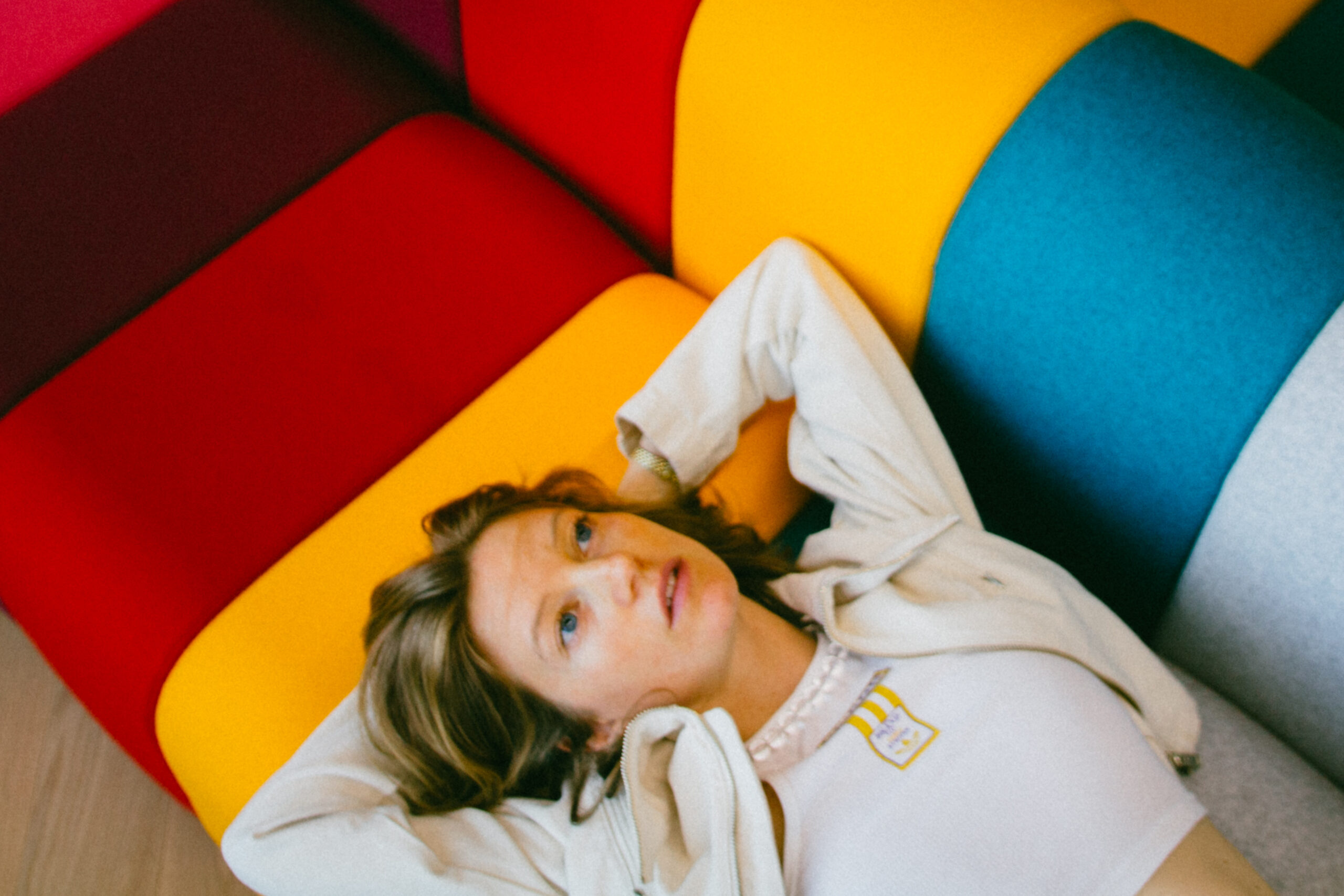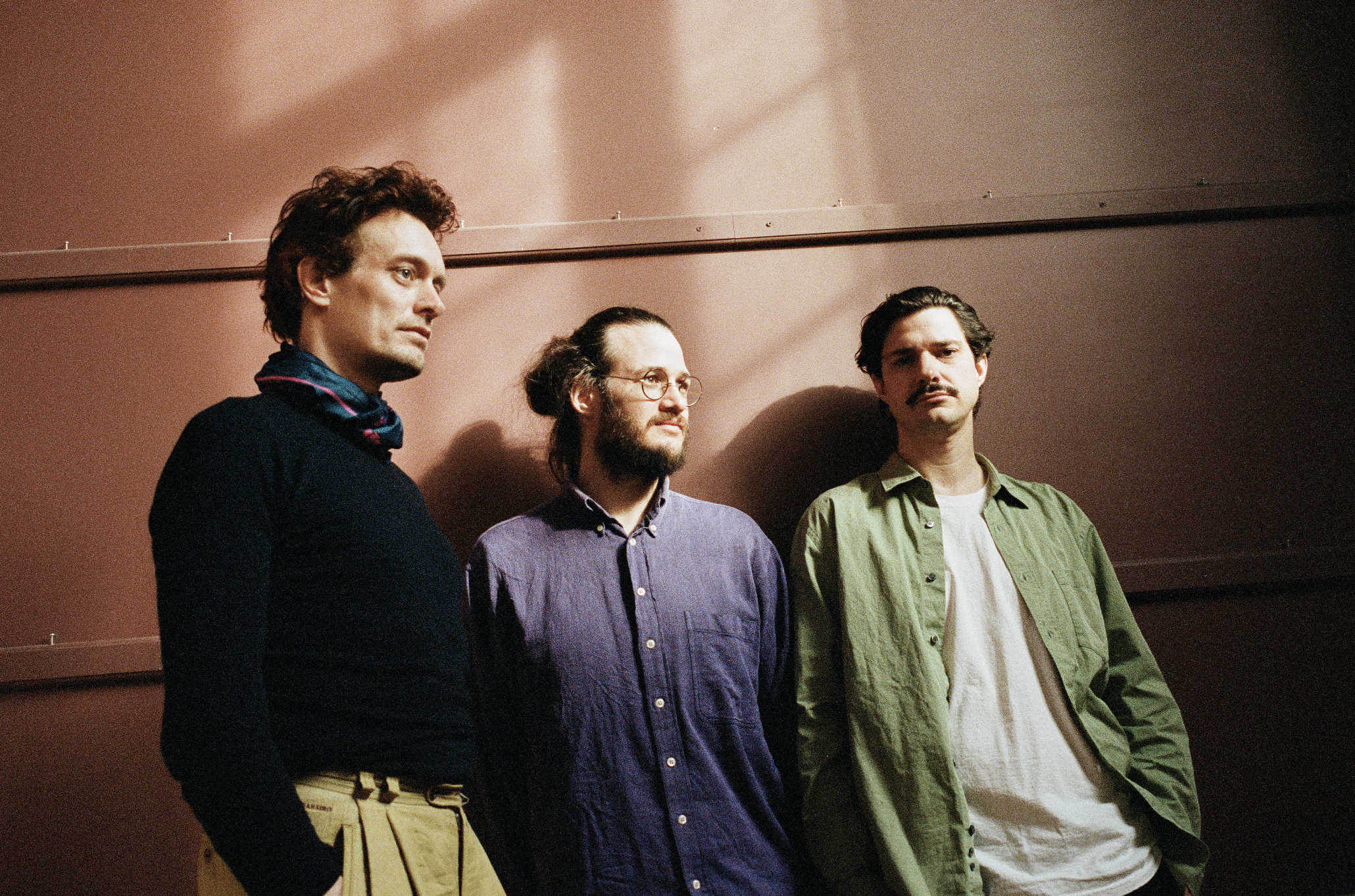Foto-© Dennis Morton
Die kreativen Köpfe der dänischen Band Efterklang scheinen niemals still zu stehen. Nach nur zwei Jahren und zahlreichen Solo- und Nebenprojekten veröffentlichen sie am 8. Oktober ihr neues Album Windflowers benannt nach den farbenfrohen winzigen Blumen am dänischen Waldboden, die den Frühling einläuten. Seit über zwanzig Jahren verschieben Efterklang die Grenzen des experimentellen, elektronischen, emotionalen Kammer-Pop. Mit ihrem sechsten Studioalbum, dem ersten für City Slang, setzt das Trio Mads Brauer, Rasmus Stolberg und Casper Clausen ihre kreative Reise fort. Das Album kanalisiert die Motive von Hoffnung und Veränderung, die die namensgebende Flora repräsentiert, und destilliert die vielen Jahre der Zusammenarbeit und des Experimentierens in einige ihrer besten und direktesten melodischen Momente bis heute.
Wir haben im September mit Casper Clausen via Zoom gesprochen. Im Interview erzählt er von der Kreativität, die ihn antreibt, dass Musikmachen für ihn nie wirkliche Arbeit war und warum er eher Angst vor zuviel als vor zu wenig Output hat. Außerdem sprechen wir darüber, dass Efterklang versucht, Teil von etwas Größerem zu sein als sich abzuschirmen, aber diese Platte trotzdem in ungewohnt kleiner Besetzung entstanden ist. Schlussendlich erfahren wir noch seine Vision für die Zukunft von Windflowers und was das mit Aliens zu tun hat.
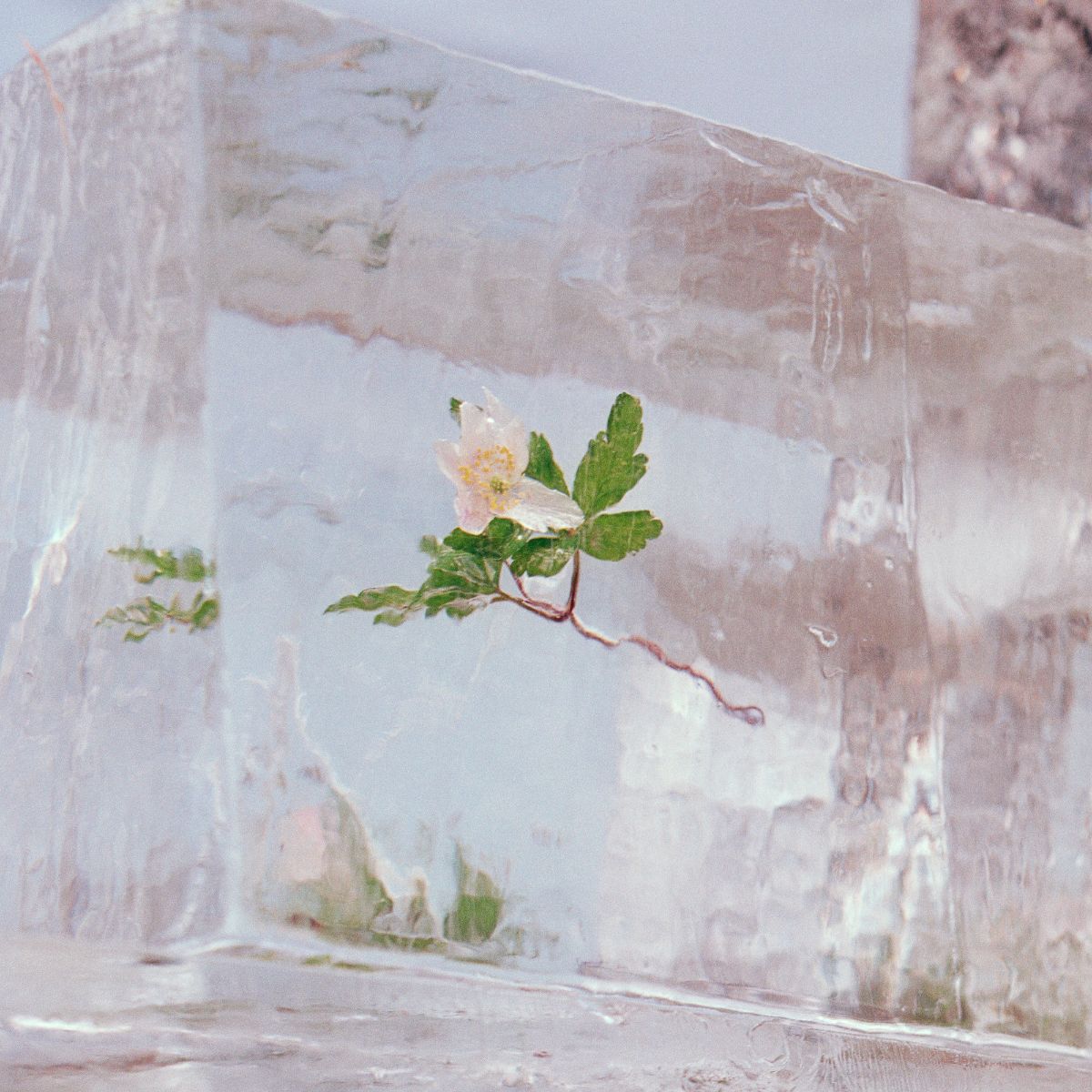 Congratulations to your new album Windflowers. You have also published a solo record this year, all of you have had great output over the years. You always seem to be working on something. How do you keep creativity alive?
Congratulations to your new album Windflowers. You have also published a solo record this year, all of you have had great output over the years. You always seem to be working on something. How do you keep creativity alive?
I can only speak for myself, but it’s been there for many years.When we started Efterklang we spent every day after work making music until 3am, went to sleep, went back to work and so on. It was just a lot of fun. Nowadays, it is a different life. You always meet interesting people and music is such a nice way of talking, it is such a nice language. Recording is so easy. There is always some kind of moment and something going on. For me, it is more a question of not confusing the listeners out there. It is more of an issue for me, not to be putting out too much at the same time. I do not know if people have the capacity for all the different things: one thing is a solo album, one is a Efterklang album, then it is a Liima album, one is a duo album… I never think so much about creativity, although I have days where I do not feel creative and feel like everything is shit and I cannot get anything done. Usually for me finding the right way into it is working with someone I am excited about or new sounds or ideas. Just having fun making it. As long as I am having fun with it, there usually is something interesting coming out. I tend to leave it for a bit and if it still feels great after some distance and time, it is worth it for me to share it with people.
I find it very remarkable that you are worried about having too much output. Usually the conversation is about the changes of music as a job with streaming and social media creating pressure of constant output that is hard to fulfill.
Yes, I know, but it is like that for me. I have a lot of friends who have trouble making music. When Spotify’s CEO said artists need to make more music to make money it is quite provoking. Every artist has to find their own way of working. Mine is that way, but there are other ways. Some people take ten or twenty years or their whole life and just before they die they come out with an album. But that is what makes it fantastic and beautiful and there should be space for all of us in some sort of way.
There is the individual way of working for each artist, but also the way the outside world gives you the space to work. You need to have time and the mental capacity to be able to do it.
Exactly, I have time. I am privileged in the sense that I have been able to live from my music in the last around ten years. This is all I do. Of course I spend time on social media and here we are in zoom talking, which is also part of my job. But it is weird to do music for a living. It is not something I consider work and I never have. At any time it becomes too “worky”, I am trying to leave it and it takes me forever to finish it. For me, to make music is all about being excited about it. The excitement is the basis of my relationship to music. It is not like I have to find myself in deep trouble to write that one song that defines what my deep trouble is. There are loads of artists and songwriters who make amazing music and do that, but I am trying to find an area where things feel exciting – an exciting sound or exciting words and things. I try to approach that from different angles on my own or with Efterklang or with someone else.

Efterklang are known for being very innovative when it comes to your recordings. What is something that you really wanted to do on Windflowers, what sparked the excitement?
It was not very conceptual. We opened a dropbox and I went to Lisbon, Mads went to Copenhagen as we had to cancel our tour in March 2020. We decided to share whatever came to our minds. During the lockdown, I went to the studio a lot, took the stuff back home and added it to the dropbox and Mads did the same. Suddenly we had 70 or 80 sketches – more ideas than we ever had before. We went to the studio together in June, when we could travel again in the south part of Denmark. I came from making my solo album in the same studio in Lisbon. Songs like Dragonfly and Living Other Lives started in a similar fashion, but they became Efterklang songs because I added them to the dropbox, we liked them and started working on them in Denmark. The spark was mainly to be making music together.
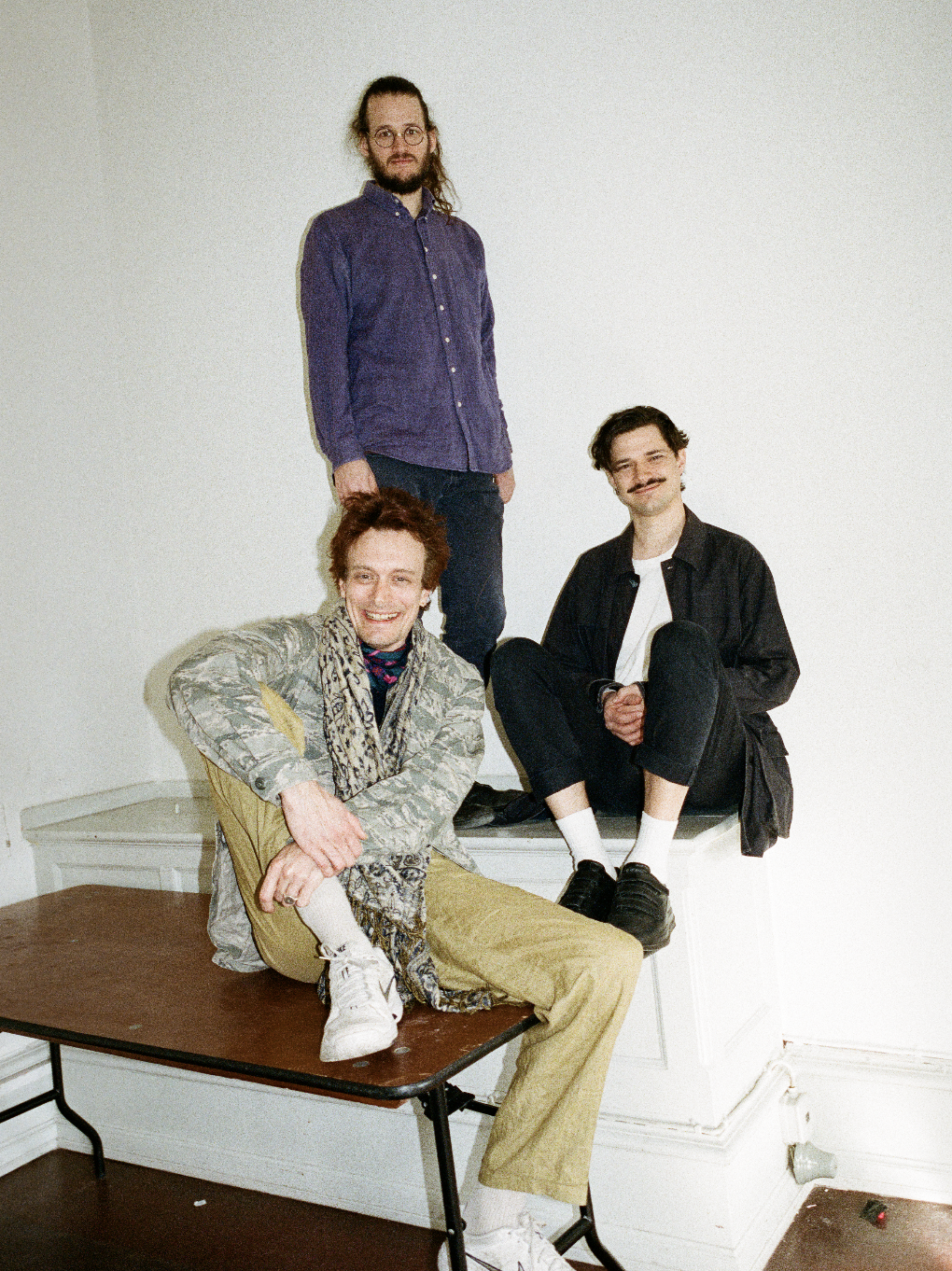 You gave up the very opulent and orchestral sound of some of your previous work and went for a more melodic and reduced approach. How was that forced by the working situation and how was that a conscious decision?
You gave up the very opulent and orchestral sound of some of your previous work and went for a more melodic and reduced approach. How was that forced by the working situation and how was that a conscious decision?
The situation was part of it. We were in a pandemic. The three of us always write the songs together, but we usually bring in a lot of different people. This time we were more attracted to using our immediate surroundings like the live band we had from touring just before. It was Øyunn and Christian Balvig from Denmark and Norway, who are our drummer and pianist and live in Copenhagen, Indrė Jurgelevičiūtė and Bert Cools, who is Lithuanian and Belgian and lives in Antwerp. We knew from the beginning that we wanted to share the sketches with them and work with them on the sounds and the voices. The more instruments and voices you put on, the less you hear the differences. I wanted to give Øyunn and Indrė and each of these characters more space.
You produced the album yourselves, did that change your approach to the process?
In a way that was very simple. Mads is always part of the mixing process, he also mixed Tripper. On other albums we would invite an outsider to mix with him. Usually the mixers we send our stuff to say it sounds awesome before they even work on it. He knows what he is doing. Due to the situation it felt natural to be a little bit more DIY and come back to the basics. This time we said, “maybe you just finish it?” We asked him if he felt comfortable doing it. After a week of thinking he came back saying yes. It felt quite natural to go that road instead of finding someone out there to help us out. We already have the full set-up.

Let’s talk about the developed platform where you invite fans to work together with you. It is interesting to bring the audience into the process other than them being a ghost that is expected to be confronted with the finished product.
It is something that has been following Efterklang for a long time. In 2010 we made the movie An Island with Vincent Moon. When we got the movie out, we came up with the idea of private public screenings. People could sign up to host a screening in their homes or where ever they wanted to do it. Suddenly we had over 5,000 screenings of people all over the world, watching the movie and taking a picture in the end and sending it to us. It was an extremely heartwarming and unbelievable thing to see people gathering around something that we made. This randomness and something not being curated is something we have been carrying on. Before the pandemic we had a tour where the idea was that we ask ten random people in each city to join our choir. During the show we had people coming up the stage and it was an amazing moment when we would start singing these songs together. Working with the app stems from a similar idea. We have the mantra that we do not want to play for people, we want to play with people. With a lot of things that we do, we immediately start thinking if there is some way to include people. It was a very simple way to ask people to help us with visuals. We gave them a song to listen to and as most people have a phone we asked them to snap a picture around them. We have ideas to implant more things in the app world, but I feel it is all connected to the idea of playing together with people and seeing what happens if Efterklang is part of something bigger. That is a thing we always have been trying to do anyway – to create something bigger than ourselves.
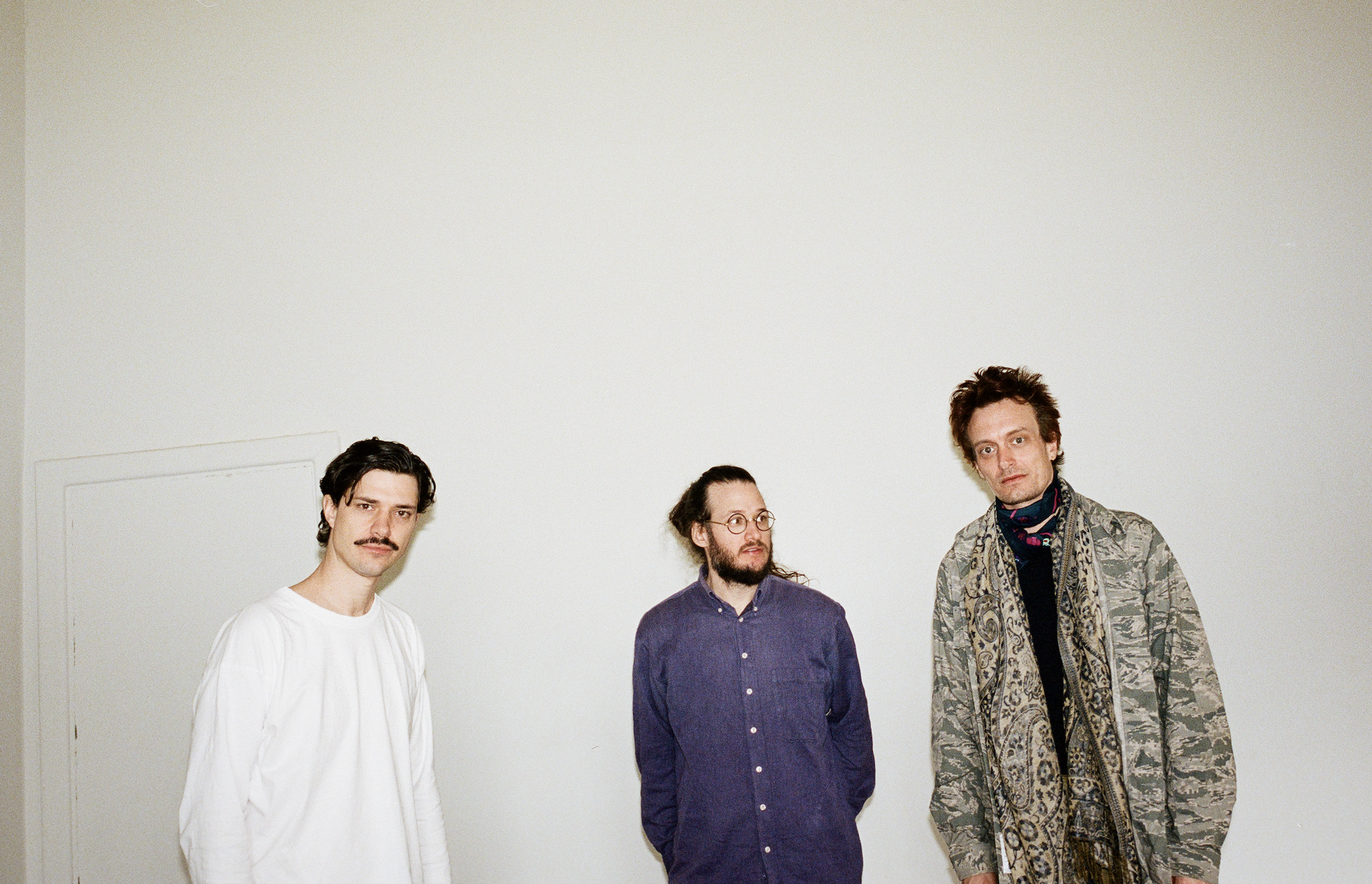 Looking back on your career, do you still see yourself in your early work? It must be great and strange to be able to meet your former self through art.
Looking back on your career, do you still see yourself in your early work? It must be great and strange to be able to meet your former self through art.
It is surreal to listen back sometimes and for a long time I did not really like it. We spend so much time inside these processes and it can be quite draining. Not so long ago I listened to our first album Tripper again and it is sometimes hard for me to find appreciation for it. But now, 15 or 16 years later, I can listen to it with a different ear. There is something about the sound I could appreciate more than I could before. I could also hear in my voice that I was a different person. It is like the feeling of looking at an old video or photo of yourself and you feel like it is not really you but some other person. In that sense, it is something that I am getting more aware of. We leave these traces of records and photos and videos behind.
What would you like to be Windflowers remembered as? What is your vision for the memory of this record?
I hope it is an album that you can listen to in 20 or 30 years and grasp a little bit of the time that we are in at the moment. Not from a virus’ perspective of the idea of lockdown and restrictions, but more of an appreciation of nature and the world we are living in. But some existential crisis is for sure luring around there. There is a call out to out of space, if there are aliens here in 30 years, I hope they heard the call and go back to the record. I hope there is enough space in the album to grow with time. I hope that people will enjoy that we took our time to record with real musicians playing together. It is hard to say, time will tell.
Thank you for the interview!
Efterklang Tour:
16.02.2022 Hamburg, Uebel & Gefährlich
17.02.2022 Nürnberg, Z-Bau
18.02.2022 Berlin, Metropol
24.02.2022 München, Strom
09.03.2022 Köln, Kulturkirche









